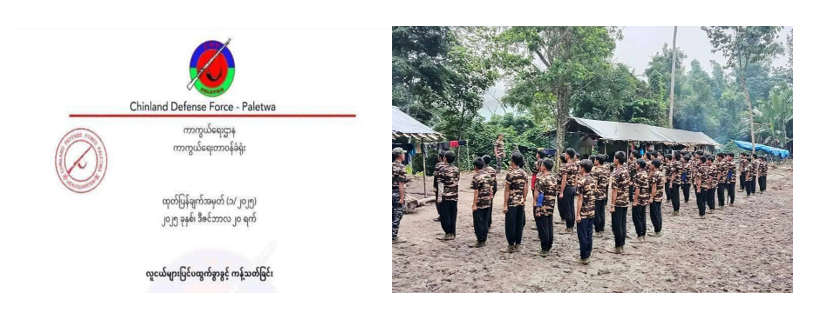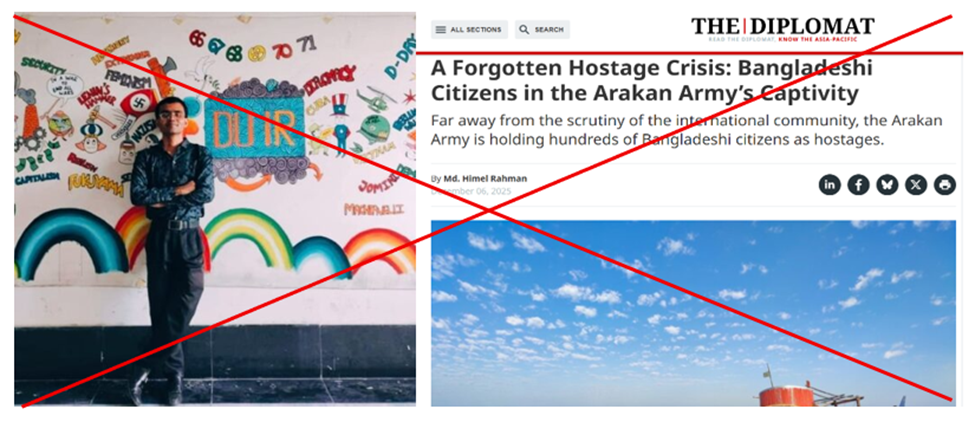Acts of Atrocities by Radical Islamic Groups in Arakan
- globalarakannetwork

- Dec 1, 2024
- 4 min read
Updated: Aug 2
GAN, Arakan (Rakhine State)
Special Report December 1, 2024

Since the collaboration of the RSO, ARSA, and ARA with the Myanmar military junta and their increasing presence in Buthidaung and Maungdaw townships, the atrocities and crimes committed by these groups have been mounting. These heinous acts include killings, torture, injuries, kidnappings, rapes, and abductions, among other violations. There are also likely many unreported incidents, and in some cases, these groups have shifted the responsibility for their crimes onto the ULA/AA.
According to reports, within just one year of the current armed conflict in Arakan, at least 74 civilians have been killed, injured, or arrested by these extremist groups. The victims come from various backgrounds, especially non-Muslim Hindus, Arakanese, Daingnet (Chakma), Khami, Mro, and others.

These individuals were killed, injured, or arrested not during armed clashes nor they are politically active. They were deliberately targeted simply because they did not support the armed activities of these extremist groups, shared similar religious beliefs with the Arakanese like Hinduism and Buddhism, or were Arakanese Buddhists.
To uncover the Islamic terrorist ideology and motivations behind these actions, it is crucial to assess some prominent incidents in which civilians were killed or massacred, starting from January 2024.
It has been reported that ARSA is the primary perpetrator of these crimes and atrocities. This report has collected several other severe crimes committed by ARSA, which can be seen in Appendix-I.
Notable incidents include:
1) The killing of seven Khumi IDPs on July 18, 2024, in Buthidaung,
2) The rape of one Hindu woman on July 26, 2024, in Maungdaw and
3) The killing of five Rakhine civilians and injuring another on July 31, 2024 in Buthidaung.

Unlike ARSA, the RSO does not seem to maintain strongholds in the rural and mountainous regions of Maungdaw and Buthidaung townships. However, since its resurgence in the refugee camps of Bangladesh and along the Arakan border, its extremist activities have escalated dramatically. Their operations have become more pronounced following their agreement with the junta authorities.
For example, during the conflict in Maungdaw on July 25, 2024, RSO militants launched a significant threat against non-Muslim communities, particularly targeting Rakhine and Hindu civilians in downtown Maungdaw. The accompanying translation of the video emphasizes the grave nature of the threats faced by these communities.
"...Muslims are allowed through. Mogh[1] are detained."

On July 22, at approximately 4 PM, alarming reports revealed that indiscriminate gunfire from the RSO forced around 150 Rakhine civilians in downtown Maungdaw to seek sanctuary within a monastery compound. The very next day, on July 23, RSO militants issued threats and forcibly closed a marketplace near the town’s football field, which had been a vital source of food, vegetables, and other essentials for both Rakhine and Hindu civilians. Meanwhile, RSO militants allowed other marketplaces that exclusively serve Muslim residents to remain operational. In a further display of hostility, about ten RSO militants enforced a ban prohibiting Muslims from selling goods to Rakhine and Hindu locals in urban Maungdaw.
However, after their retreat from Maungdaw due to a battle loss, the RSO members regrouped in Bangladesh and continued frequent attacks not just against the AA but also against civilian targets. The key terrorist haven inside Bangladesh for the RSO militants is the 'Island of Jaliadwip', a 1.1 square kilometer island in the Naff River.

The presence of RSO militants on the Bangladesh side has become a critical threat, not only to AA security operations but also to cross-border humanitarian activities and civilians from all backgrounds who depend on the livelihoods provided by the Naff River. On September 1, 2024, local sources reported that a group of RSO militants ambushed and killed four AA soldiers before retreating into the Bangladeshi side. On November 3, another incident occurred when RSO militants, who had been residing on Jaliadwip Island in Bangladesh, suddenly launched an attack on AA security positions, resulting in the death of one AA soldier and injuries to six others. Three days later, another incident took place where one AA soldier was killed, and the RSO militants retreated back into Bangladesh.
The aggressive activities of the RSO extended beyond their political objectives. On October 1, 2024, local sources reported that the RSO attacked a boat carrying humanitarian items, including medicines, to Arakan on the Naff River. In addition to the attack, the RSO sent a threatening email to the head of the international non-governmental organization, warning that they were prepared for such actions and threatening the lives of the personnel involved.
On October 31, U Nyi Nyi from Ywet Nyotaw Village was attacked with knives by the RSO while returning to the village after delivering shrimp with three Muslim workers from Ashitjar Village. The incident occurred around 6 PM near the Mayu River, where the RSO group arrived in a boat, shot at U Nyi Nyi's engine, causing it to stop, and seized the goods from the boat.

As time passed, the RSO's presence within Bangladesh became increasingly entrenched, posing a serious threat not only to the security operations of the AA but also to the safety and survival of the local population. One of the key factors contributing to the RSO’s growing foothold along the Naff River is the apparent acceptance of Bangladeshi security agencies, such as the BGB and DGFI, which have allowed the group to operate with impunity.
Note: This chapter is part of the report titled "Growing Extremist Activities of Islamic Jihadist Groups in Northern Arakan," authored by GAN. The remaining parts and chapters will follow.




_edited.png)


